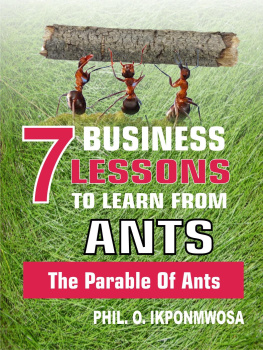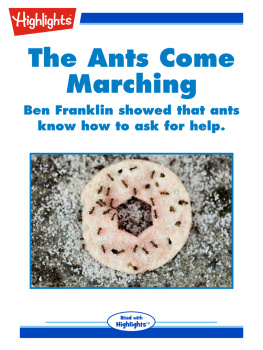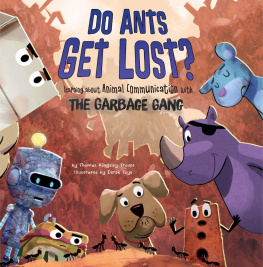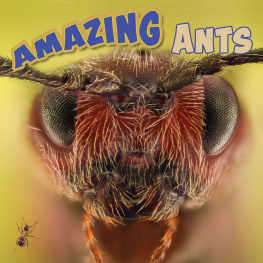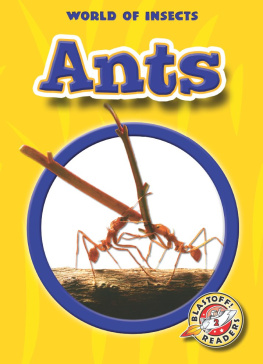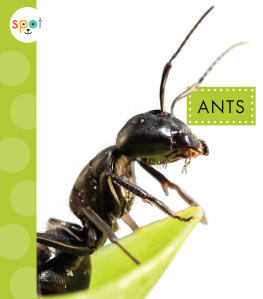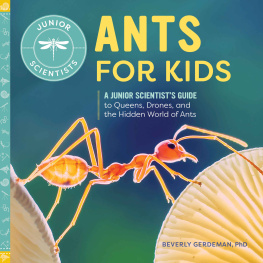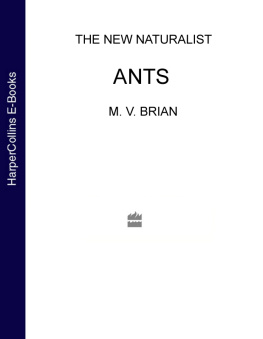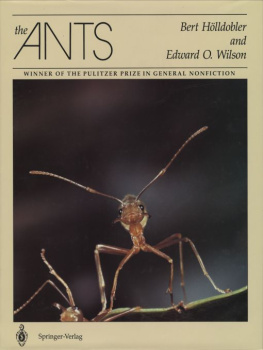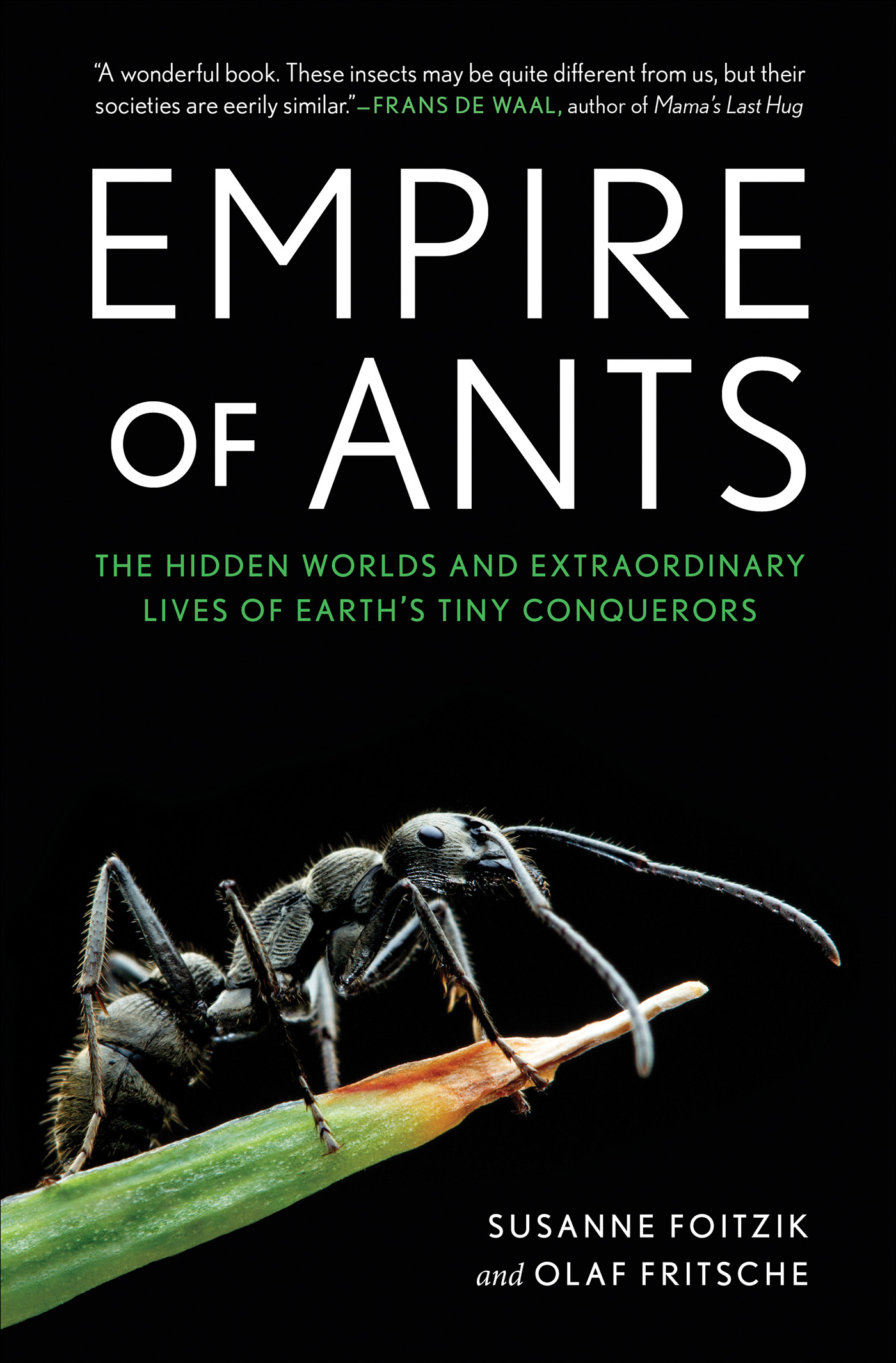Contents
Guide
acclaim for
empire of Ants
_________
Are we the sole rulers of this world? This wonderful book brings our tiny co-rulers alive via an engaging description of ants cities, hard work, warfare, royalty, diversity, and ecological impact. These insects may be quite different from us, but their societies are eerily similar.
Frans de Waal, author of Mamas Last Hug and Are We Smart Enough to Know How Smart Animals Are?
If you ever wanted to travel to an exotic planet filled with strange life formsyouve arrived. The range of sizes, abilities, societies, quirks, and ecological roles that ants have evolved is mind-boggling. And so is this absolutely amazing, beautifully written book.
Carl Safina, author of Becoming Wild: How Animal Cultures Raise Families, Create Beauty, and Achieve Peace and Beyond Words: What Animals Think and Feel
This is a charming tribute to the little creatures that run the world. A distinctive, fascinating selection of the many wonders weve discovered about the world of ants.
Bert Hlldobler, Regents Professor at Arizona State University and coauthor of the Pulitzer Prizewinning The Ants
Susanne Foitzik and Olaf Fritsche have you enter a whole new universe worthy of a science fiction novel, yet it exists right at your feet.
Mark W. Moffett, author of The Human Swarm and Adventures Among Ants
This highly entertaining book makes it clear that Mother Nature has been having a wildly fun time molding these social insects into an abundance of behavioral and physical expression.
Jonathan Balcombe, author of What a Fish Knows and Super Fly

Contents
_________
INTRODUCTION
Small but Mighty
Chapter 1
Take Me to Your Leader!
Chapter 2
The Birth of a Colony
Chapter 3
Effective Anarchy
Chapter 4
Communicative Sensuality
Chapter 5
Finely Tuned Navigation
Chapter 6
Savage Hordes
Chapter 7
A Garden for a City of Millions
Chapter 8
A Treehouse for the Nation
Chapter 9
Milking It: Ants and Their Livestock
Chapter 10
On Parasites and Slave-makers
Chapter 11
Physician, Heal Thyself
Chapter 12
The Path to World Domination
Chapter 13:
Crazy Critters
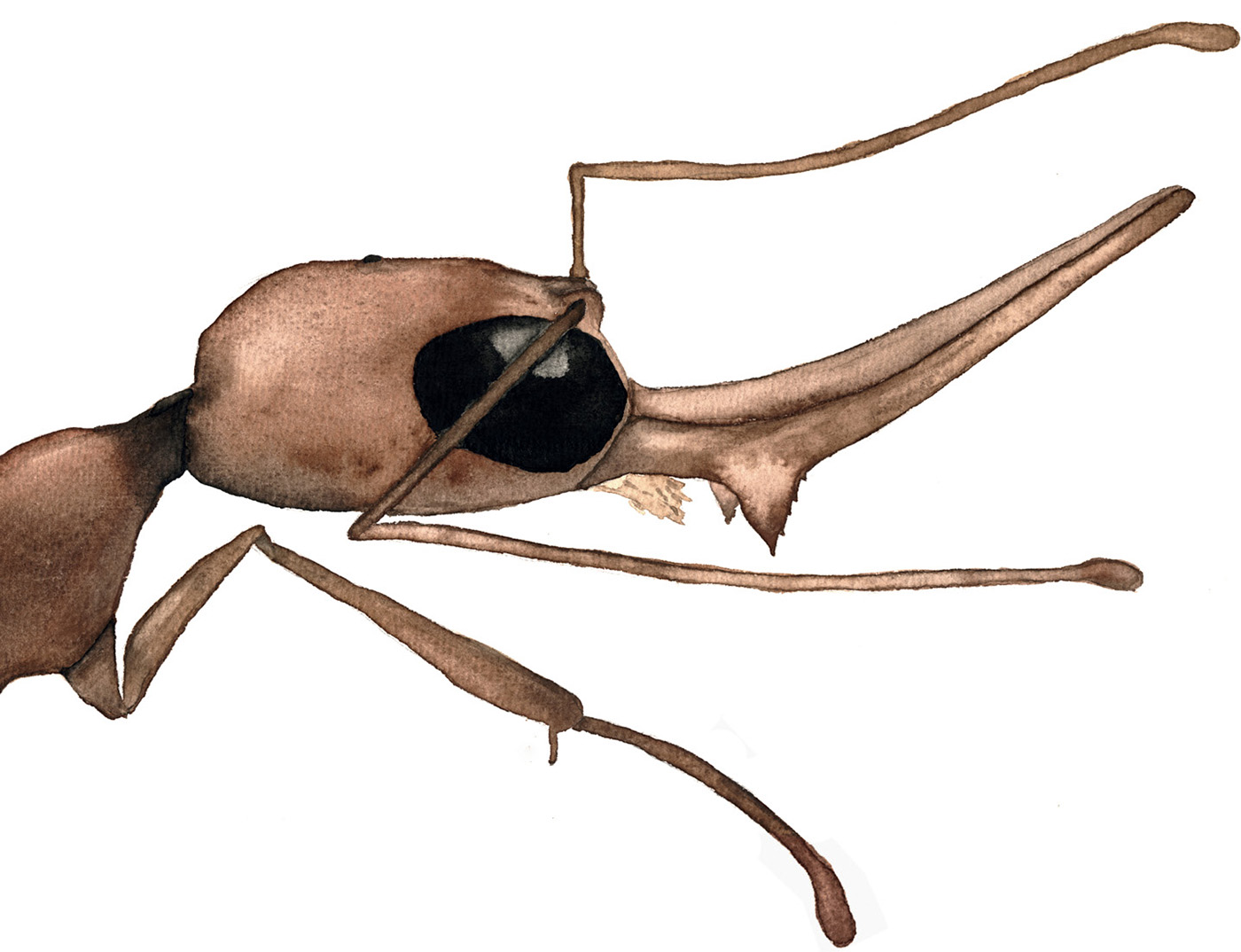
The Indian ant species Harpegnathos saltator uses its large eyes to hunt.
Introduction
Small but Mighty
____
They often say people look like ants when seen from a great height.
I lean forward a little in my seat and look out of the window. Our flight to Peru has yet to reach cruising altitude. Below us, I can just about make out roads, houses and fields, cows in a pasture, here and there a village, and a city in the far distance. Its not a bad analogy, I think. Everything I can see from up here is something I have encountered in my research on ants: fixed roads, spectacular buildings, agriculture, livestock farming. I let myself sink back into my seat. The parallels dont stop there, if you think about it. Ants live in cities, just like people. In times of peace, they go about their work, sharing the labor fairly. Each has a job, from the wet nurses in the nursery to the architects, construction workers, and housekeepers in the nest, to the hunters and gatherers, who ensure that everyone is fed. But peace does not last forever, even among ants. Neighbors fight over the borders to their territory and wage bitter wars on one another. Invaders overwhelm unsuspecting colonies. The weaker members are carried off and enslaved. Ants look on as whole empires rise and fall.
Just like us.
not all queens are created equal
Of course, the parallels dont necessarily mean that ants and humans are the same, or that ants would do a better job of being human than we do. That kind of thinking is way off the mark. Many similarities have only emerged because we have applied terms of human social structures to the organizational structures of ants. Take, for example, ant queens. They have almost nothing in common with human monarchsunless you know of any queens who literally gave birth to all of her subjects. And you wont encounter anything like your average female ant worker in a human factory. Yet we use the same descriptors in both situations, because we have no better words for them, and new terms would make things needlessly complicated. Plus, these terms are surprisingly apt when it comes to describing the attributes of ants. But we should bear in mind that these terms dont mean the same thing when applied to human societies.
Its impossible to deny the parallels between people and ants, but these commonalities have emerged in different waysfor ants, they are solely the result of natural selection; for us, they are also the result of civilization, technology, and a system of moral values, but we often find similar problems confronting us: How can a large number of individuals live together in a small space? How do groups compete for resources? How do we stand our ground in an environment full of potential dangers?
Commonalities and differences: Perhaps it is this combination of the two that makes ants so fascinating to us.
staggeringly small
The most striking difference between ants and people is size: Ants are obviously much smaller than us. The largest specimens can reach the size of a june bug and the smallest are barely the size of the dot on the letter i. The tiny pharaoh ant (Monomorium pharaonis) could crawl about on the head of a carpenter ant (Camponotus gigas) without much troublea size difference akin to that of a man and a mouse.
In human terms, the nations of ants weve observed have been as tiny as San Marino and as massive as China. Colonies of the genus Temnothorax comprise just a few dozen insects and fit neatly inside an acorn. By contrast, colonies of leafcutter ants can number as many as three million, living in underground nests as big as houses. These are outfitted with extensive rooms, corridors, ventilation systems, humidity control, waste disposal facilities, and climatic chambers for growing fungus. These are cities of a million insect inhabitants, much like New York, but built entirely underground. Would humans be capable of creating and sustaining a similar underground world?
Amid all these comparisons, we must not forget that when we talk about humans, we are only talking about a single species, Homo sapiens, whereas the world of ants boasts thousands of different species, some of which indulge in very different lifestyles. There are variations and exceptions to almost every pattern of behavior we encounter in this book, some of which only appear in a few species. But in many ways, (almost) all ants are the same. And it is these commonalities to which they owe their unique place in the world.
the secret to success
The secret to ants success is largely grounded in their attitude to life: Ask not what your colony can do for you, ask what you can do for your colony. An ant is helpless without its colony but is always ready to sacrifice itself on the colonys behalf. Even the mighty ant workers of the tropical bullet ant species


